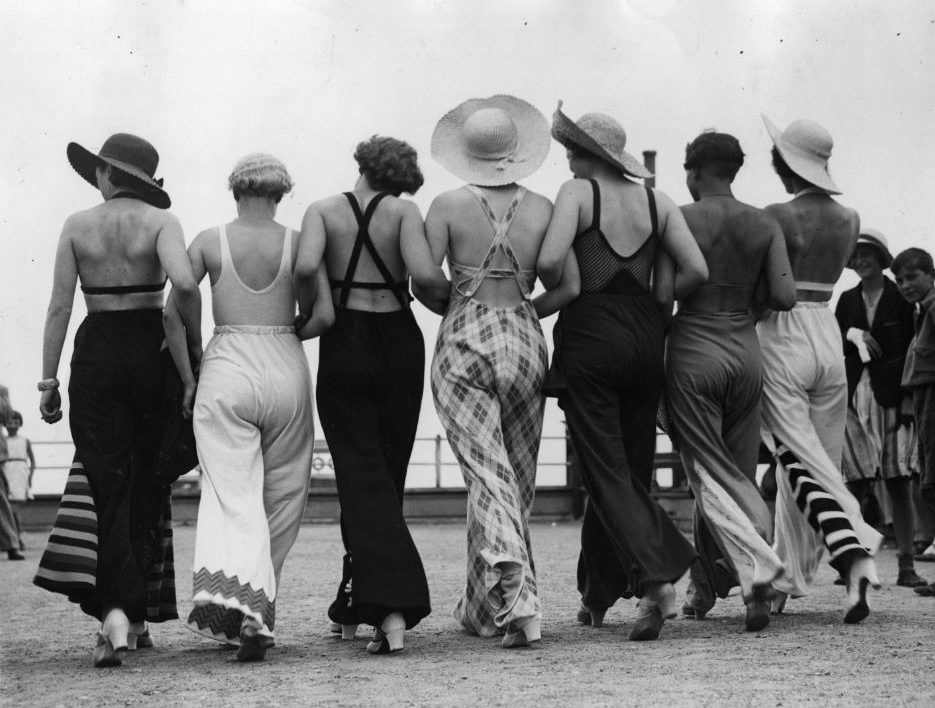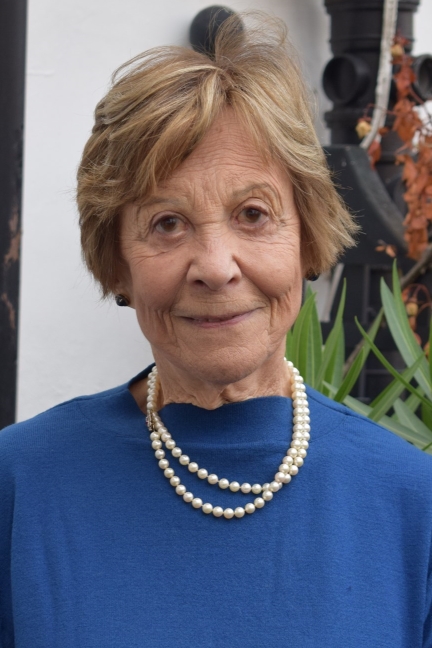By Anne De Courcy
Chanel’s Riviera by Anne de Courcy explores the fascinating world of the Cote d’Azur during a period that saw the deepest extremes of luxury and terror in the twentieth century. Read on for an exclusive excerpt.

As well as being the world’s most fabled holiday resort the Riviera was, for many, an intense stimulus to creativity. Around Christmas 1931 the writer Georges Simenon had rented the villa Les Roches Grises in Antibes. To get about, he imported a Chrysler Imperial from the US and settled down to write three of the Maigret novels for which he would become famous. He was not the only one to have found sudden, spectacular fame on the Riviera.
In Sanary, Aldous Huxley wrote his seminal novel Brave New World (published in 1932) in four months between May and August. Set in London in the year ad 2540 (632 AF – ‘After Ford’ – in the book), it anticipated developments in reproductive technology, attitudes to sex, addiction, sleep-learning, psychological manipulation and conditioning. The mechanistic society it produced, governed at a distance by the Resident World Controller of Western Europe, gives a horrific vision of what Huxley himself called ‘a negative utopia’. The Connollys, who had given up trying to form an intimate friendship with Huxley, returned to London.
Three years earlier, in 1928, Kurt Weill and Bertolt Brecht, both regarded as enfants terribles in the Berlin of the Weimar Republic, were working on an adaptation of Gay’s The Beggar’s Opera. Brecht had already written a first draft, to be called The Threepenny Opera. With rehearsals planned for August, the pair fled with their wives in mid-May to the Riviera, where they could work hard and uninterruptedly. They settled in Le Lavandou, where Weill’s wife, the well-known actress Lotte Lenya, described the intensive collaboration of the two men. ‘[They] wrote and rewrote furiously, night and day, with only hurried swims in between.’
The peace and sunshine of the Riviera worked their magic. Their revolutionary ‘play with music’, like nothing that had been seen before, was shown in Berlin on 31 August. When it ended, the applause was deafening. The smart set loved it. ‘One simply has to have been there,’ said the Anglo-German aesthete Count Harry Kessler. Perhaps predictably, the National Socialist press, frothing at the mouth, could barely find words vitriolic enough to condemn it. ‘Some especially noxious cesspool they find in a corner of any big city is barely good enough for the celluloid romance of this two-bit culture,’ was one comment.
Others simply sought pleasure on the coast. In 1932 the Mosleys returned to the Riviera as usual, arriving on 2 August, this time to a rented villa. The financial blizzard was looming: halfway through August an Austrian bank went bankrupt, foreign depositors called in their money from London, there was a run on the pound and gold reserves were depleted. Harold Nicolson, left in charge at Mosley’s New Party headquarters, wrote to him: ‘I recognise that people may say that at the gravest crisis in present political history you prefer to remain upon the Mediterranean. On the other hand, I do not see what you would do were you here at the moment.’
Life in Antibes went on in its usual way. For the Mosleys, this meant dinner with Michael Arlen, the celebrated author of The Green Hat, visits to the bar at the Eden Roc in a chattering group of the ultra-social – Sylvia Ashley, Cecil Beaton, Doris Castlerosse, as always in the brief shorts that made the most of her superb legs, while other women wore the beach pyjamas and ropes of pearls made so fashionable by Chanel. And inevitably, Tom Mosley pursuing yet another woman.
One evening Mosley’s pursuit of this inamorata was so blatant that Cimmie, as her sister Irene recorded, ‘ran out of a dinner party and down the street in a blind rage’. But next day the round of lunch parties, dinners, nightclubs, cocktail chatter and drunkenness began again.
In Germany, the effects of the Depression had been immediate and catastrophic. America called in all its foreign loans and the Weimar Republic was destroyed. The government cut wages, workers were laid off everywhere and there were six million unemployed. In this time of extreme poverty and political turmoil, of anger and bitterness, some turned to communism, others to the rising Nazi Party, which seemed to offer a way forward. Where in 1928 the Nazis had only had twelve seats in the Reichstag, by July 1932 they held 230 of the 608 seats – and were the largest party.
Check out an audio excerpt of Chanel’s Riviera!
The government was in chaos, only able to pass laws by using Article 48 (this allowed the President, under certain circumstances, to take emergency measures without the prior consent of the Reichstag). In January 1933 Hindenburg and the then Chancellor, von Papen, came up with a plan to get the Nazis on their side by offering to make Hitler Vice-Chancellor. He refused, demanding instead to be made Chancellor. Thinking they could control him, they agreed. Hitler immediately urged the dissolution of the Reichstag and the calling of new elections. Simultaneously, the Nazis unleashed a campaign of violence and terror, first against communists, trade unions and anyone suspected of being left-wing, then the centre and Social Democrats.
When, in late February, the Reichstag was set on fire by a Dutch communist, the Nazis had the excuse they wanted to imprison communists. The elections that took place in March 1933 were closely ‘monitored’ by Hitler’s Brownshirts; unsurprisingly, there was a large increase in the Nazi vote. Two weeks later Hitler was able to pass an ‘Enabling Act’, which gave him dictatorial powers, and within months all other parties were banned and their supporters dismissed from all government offices. The Nazi takeover was complete.

Anne de Courcy is the author of many widely acclaimed works of social history and biography, including 1939: THE LAST SEASON, MARGOT AT WAR, THE FISHING FLEET, THE VICEROY’S DAUGHTERS and DEBS AT WAR. Her books DIANA MOSLEY and SNOWDON; THE BIOGRAPHY were turned into television documentaries, while THE HUSBAND HUNTERS has been optioned for a feature film. She lives in London and Gloucestershire.
